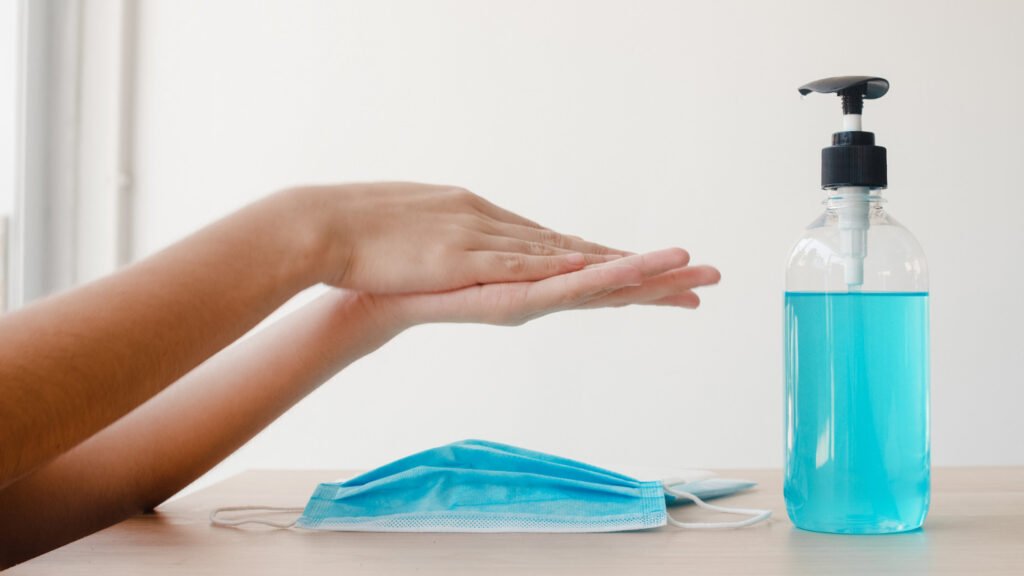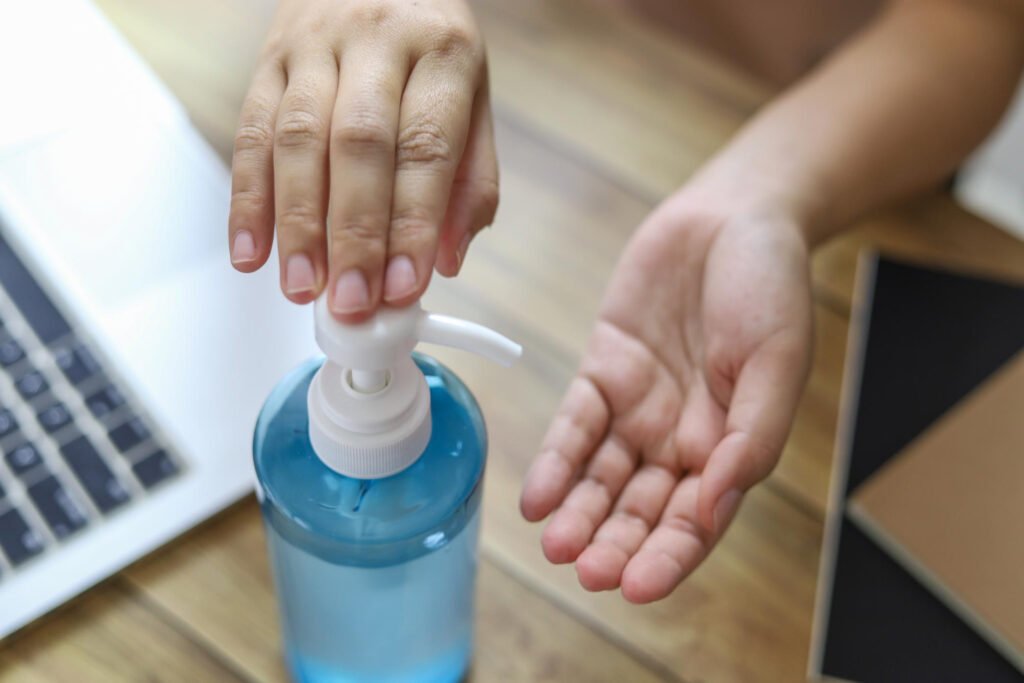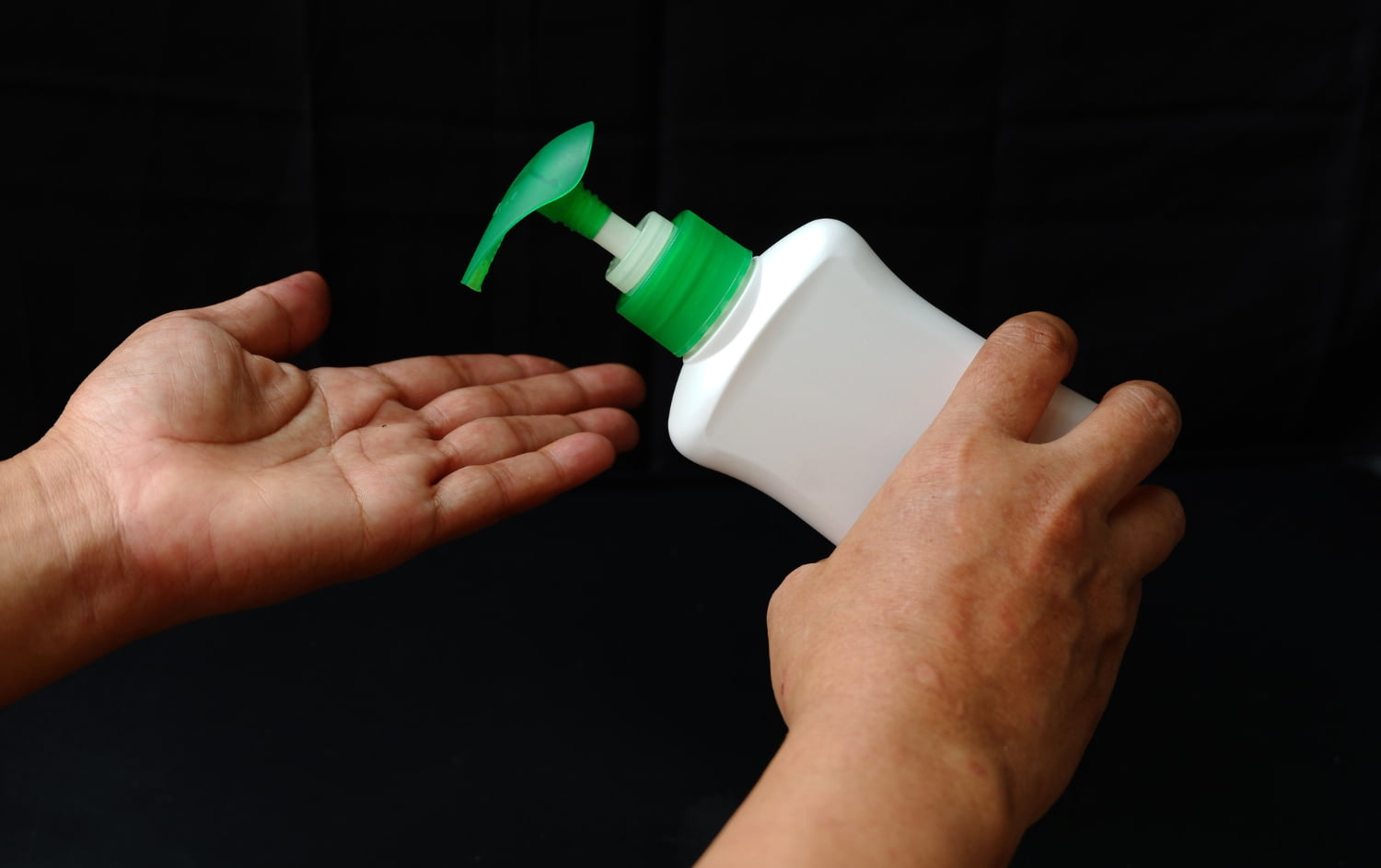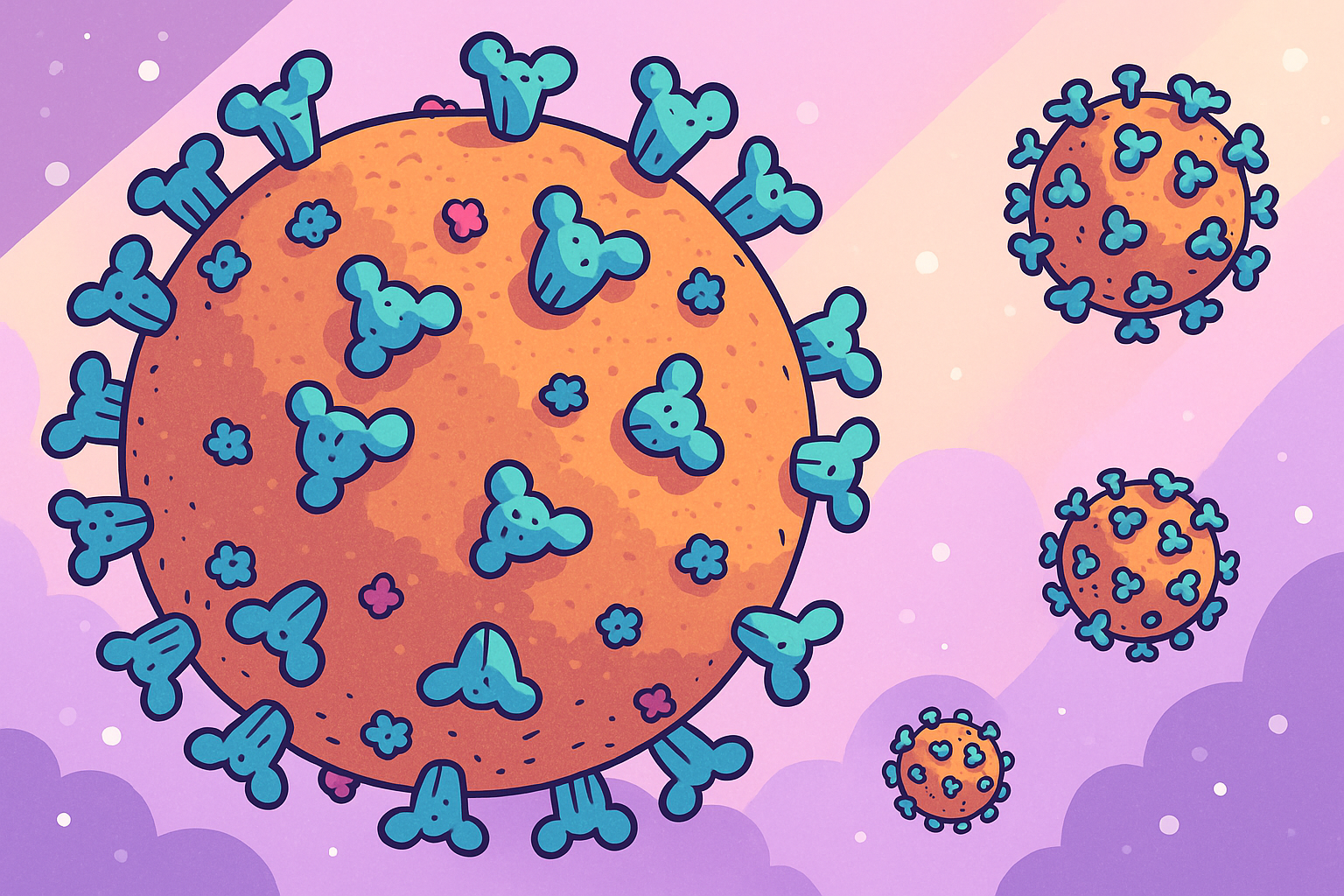Fertility is an essential aspect of many people’s lives, especially for couples trying to conceive. With so much emphasis on maintaining health and hygiene, it’s natural to wonder how various products we use daily might impact fertility. One common question that arises is whether hand sanitizer can kill sperm.
This blog post aims to address that query, providing insight into the science behind hand sanitizers and their potential effects on sperm health.
What is Hand Sanitizer?
Definition and Composition
Hand sanitizer is a liquid or gel used to reduce the amount of infectious agents on the hands. The most popular hand sanitizers are alcohol-based, typically containing ethanol or isopropanol as the primary active ingredient.
These alcohols are effective at denaturing proteins and dissolving lipids, leading to the destruction of bacteria and viruses.
Non-alcohol-based hand sanitizers may contain other antimicrobial agents like benzalkonium chloride, which also help kill germs but are generally considered less effective than alcohol-based options.
Usage and Popularity
The use of hand sanitizer surged during global health crises such as the COVID-19 pandemic. Its convenience, portability, and effectiveness make it a popular choice for maintaining hand hygiene, particularly when soap and water are not readily available.
Hand sanitizers offer the benefits of quick application and rapid drying, making them a staple in both personal and public health measures.
How Does Hand Sanitizer Work?

Mechanism of Action
Hand sanitizers work by disrupting the cell membrane or envelope of microorganisms. The high alcohol content in sanitizer causes proteins in bacteria and viruses to denature, essentially breaking them down. For optimal efficacy, a hand sanitizer should contain at least 60% alcohol.
At this concentration, the product can effectively kill most germs, including those responsible for the common cold, flu, and various other infections.
Application Methods
To use hand sanitizer correctly, apply a small amount to the palm of one hand and rub your hands together. Make sure the sanitizer covers all surfaces of your hands and fingers. Continue rubbing until your hands are dry.
This method ensures that the sanitizer comes into contact with the maximum surface area, enhancing its germ-killing efficiency. Hand sanitizers are particularly useful in situations where handwashing facilities are unavailable, such as during travel or in public spaces.
Can Hand Sanitizer Kill Sperm?
Main Question Answered
The straightforward answer to whether hand sanitizer can kill sperm is yes, but with some caveats. Hand sanitizers, particularly those with high alcohol content, are effective at disrupting cellular structures. Since sperm cells are relatively delicate, they can be damaged or killed by contact with strong chemicals like those found in hand sanitizers.
Scientific Insights
Research on the direct impact of hand sanitizer on sperm is limited, but existing studies indicate that the alcohol and other antimicrobial agents in hand sanitizers are likely to harm sperm cells.
Alcohol can denature proteins and disrupt cellular membranes, leading to the breakdown of sperm cells. Comparatively, other substances like soap and water may also kill sperm but through different mechanisms.
Given the potent nature of hand sanitizers, their impact on sperm is comparable to other strong disinfectants.
Impact of Hand Sanitizer on Fertility

Fertility and Sanitization
Frequent use of hand sanitizer on the hands is unlikely to pose a significant risk to fertility. The primary concern would arise from direct contact between hand sanitizer and sperm, which typically doesn’t occur in day-to-day use.
Short-term exposure to hand sanitizer is unlikely to have lasting effects on sperm health, but prolonged or direct contact should be avoided, especially in contexts where conception is a goal.
Conception and Sanitization
For couples trying to conceive, the use of hand sanitizer should be managed carefully. While hand sanitizers are effective at killing germs, they should not be used on areas of the body where sperm is present or applied in contexts where they might come into direct contact with reproductive organs.
Practical advice includes washing hands thoroughly with soap and water before any activity related to conception and avoiding the use of hand sanitizer in intimate settings.
Other Factors Affecting Sperm Health
Lifestyle Choices
Several lifestyle factors can impact sperm health. A balanced diet rich in vitamins and minerals supports overall reproductive health. Regular exercise also promotes healthy sperm production.
However, certain habits like smoking, excessive alcohol consumption, and drug use can negatively affect sperm quality and count.
Environmental Influences
Environmental factors, such as exposure to toxins and pollutants, can also impact sperm health. Chemicals found in pesticides, heavy metals, and industrial pollutants are known to harm reproductive health.
Occupational hazards, particularly in industries involving heavy machinery or chemical exposure, can contribute to reduced sperm quality.
Safety Precautions for Couples Trying to Conceive

Hand Hygiene Alternatives
For couples trying to conceive, using safer hand hygiene alternatives is advisable. Soap and water remain the gold standard for hand hygiene.
They effectively remove germs without the harsh chemicals found in hand sanitizers. When soap and water are unavailable, alcohol-free hand sanitizers can be a safer option.
General Fertility Tips
Maintaining a healthy lifestyle is crucial for fertility. Regular medical check-ups ensure that both partners are in good health and can identify potential issues early.
Consulting with fertility experts can provide personalized advice tailored to individual needs. Reducing stress, eating a balanced diet, and exercising regularly are foundational practices for improving fertility.
Conclusion
Summary of Key Points
In summary, while hand sanitizer can kill sperm, its typical use on hands poses minimal risk to fertility. It’s essential to consider multiple factors when trying to conceive, including lifestyle choices and environmental influences.
Encouragement for Readers
Couples trying to conceive should focus on maintaining overall reproductive health and consult healthcare providers for personalized advice. For more health and fertility tips, consider subscribing to our blog and sharing your experiences with our community.
FAQs
Can sperm survive in hand alcohol?
No, sperm cannot survive in hand alcohol. The alcohol content denatures proteins and disrupts cellular membranes, effectively killing sperm.
Does hand sanitizer affect fertility?
While hand sanitizer can kill sperm on contact, its typical use on hands does not significantly impact overall fertility.
Can hand wash kill sperm?
Yes, hand soap can kill sperm, but it is less harsh than hand sanitizer. Washing hands thoroughly with soap and water is effective for maintaining hygiene.
Does sperm die in the hand?
Sperm can die in the hand due to exposure to air, temperature changes, and contact with chemicals like soap or hand sanitizer.









